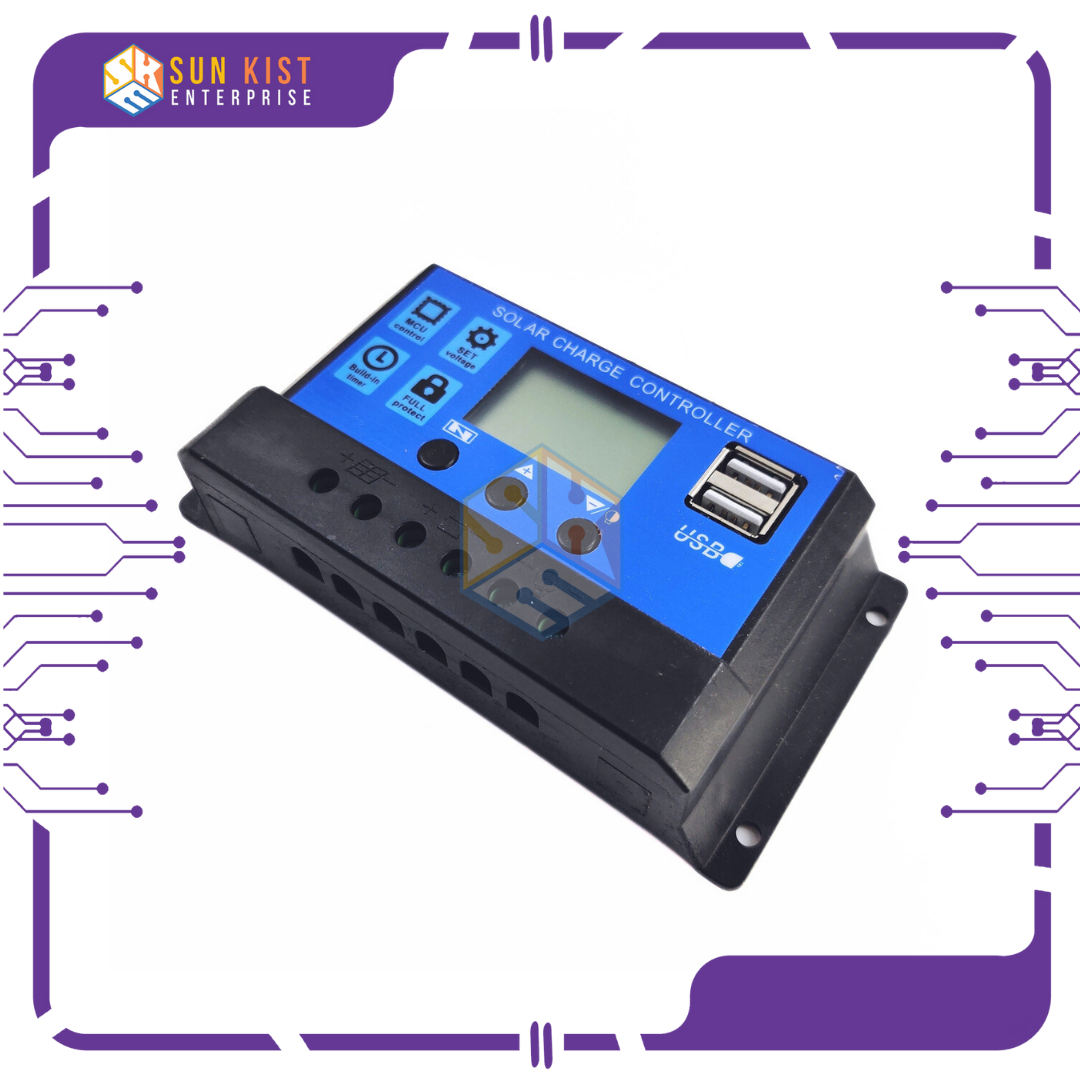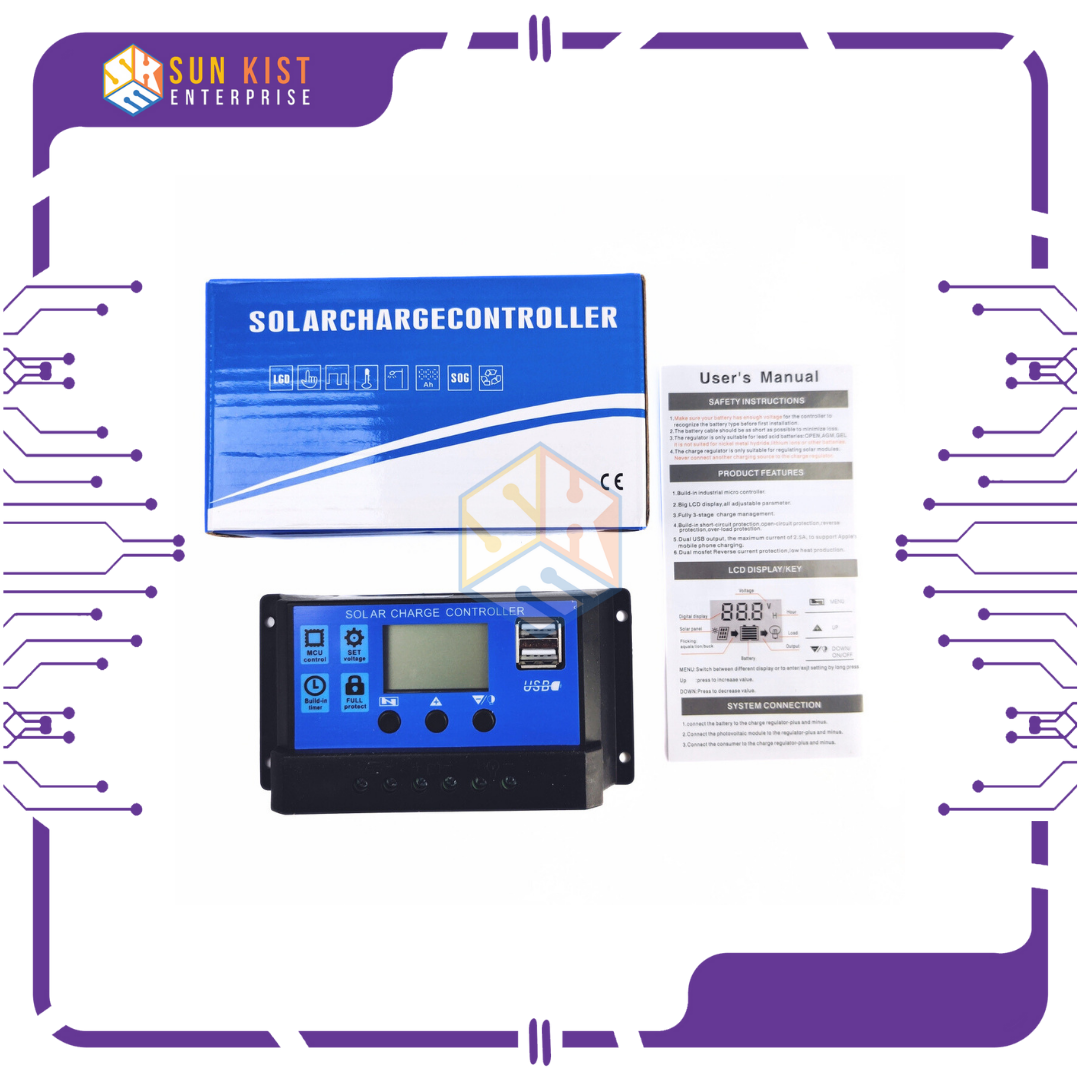Description
Solar Charge Controller 20A 12V” is a device used in solar power systems to regulate and manage the charging of 12-volt batteries from solar panels. Here’s a description of its key features and characteristics:
1. Current Rating: The “20A” in the name indicates the maximum current capacity of the charge controller. In this case, it can handle up to 20 amperes of current from the solar panels to charge the connected 12-volt battery.
2. Voltage Compatibility: The charge controller is designed for use with 12-volt systems, which are commonly found in small to medium-sized off-grid solar installations, including RVs, boats, cabins, and solar lighting systems.
3. Solar Panel Compatibility: It’s designed to work with solar panels that have a voltage output compatible with 12V battery systems. The solar panel voltage should match or be slightly higher than the battery voltage for efficient charging.
4. Charging Regulation: The primary function of a solar charge controller is to regulate the charging process. It prevents overcharging by disconnecting the charging current when the battery is fully charged. This prolongs the life of the battery and ensures its safety.
5. Load Output: Many charge controllers have a load output that can be used to power DC devices or loads directly. This is useful for running small appliances, lighting, or other equipment directly from the solar system.
6. Protection Features: Charge controllers often include protection mechanisms like overcharge protection, over-discharge protection, short-circuit protection, and reverse polarity protection, ensuring the battery and solar system’s safety.
7. LED Display: Some charge controllers come with LED displays showing information like battery voltage, charging status, load status, and other system parameters. This helps monitor the system’s performance.
8. PWM or MPPT: Solar charge controllers come in two common types: PWM (Pulse Width Modulation) and MPPT (Maximum Power Point Tracking). PWM controllers are simpler and more affordable, while MPPT controllers are more efficient, particularly when the solar panel voltage differs significantly from the battery voltage. The choice depends on the specific requirements of your system.
9. Compact Design: Solar charge controllers are typically compact and designed for easy installation in solar power systems. They usually have screw terminals for connecting wires and may be installed in an enclosure or directly on a mounting surface.
10. Suitable Applications: A 20A 12V solar charge controller is commonly used in medium-sized off-grid solar systems, such as those found in larger RVs, marine applications, cabins, and solar power systems for lighting or moderate appliance use.
When choosing a solar charge controller, ensure it’s compatible with your solar panel and battery setup and meets the expected load requirements. The charge controller is a crucial component for optimizing the performance and lifespan of your solar power system.










